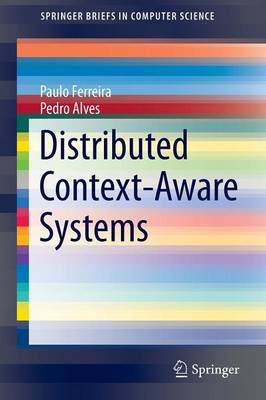SpringerBriefs in Computer Science
1 total work
Context-aware systems aim to deliver a rich user experience by taking into account the current user context (location, time, activity, etc.), possibly captured without his intervention. For example, cell phones are now able to continuously update a user’s location while, at the same time, users execute an increasing amount of activities online, where their actions may be easily captured (e.g. login in a web application) without user consent. In the last decade, this topic has seen numerous developments that demonstrate its relevance and usefulness. The trend was accelerated with the widespread availability of powerful mobile devices (e.g. smartphones) that include a myriad of sensors which enable applications to capture the user context. However, there are several challenges that must be addressed; we focus on scalability (large number of context aware messages) and privacy (personal data that may be propagated). This book is organized in five chapters starting with an introduction to the theme raising the most important challenges. Then, chapter two presents several important definitions (establishing a common ground for the following chapters) and taxonomy. These are important to chapter three which describes some of the most relevant distributed context-aware systems that can be classified according to the taxonomy. Privacy is addressed in chapter four and chapter five presents some important conclusions. The audience for this book is wide; researchers, students and professionals interested in the areas addressed will find the most relevant information regarding scalability and privacy in distributed context-aware systems.
